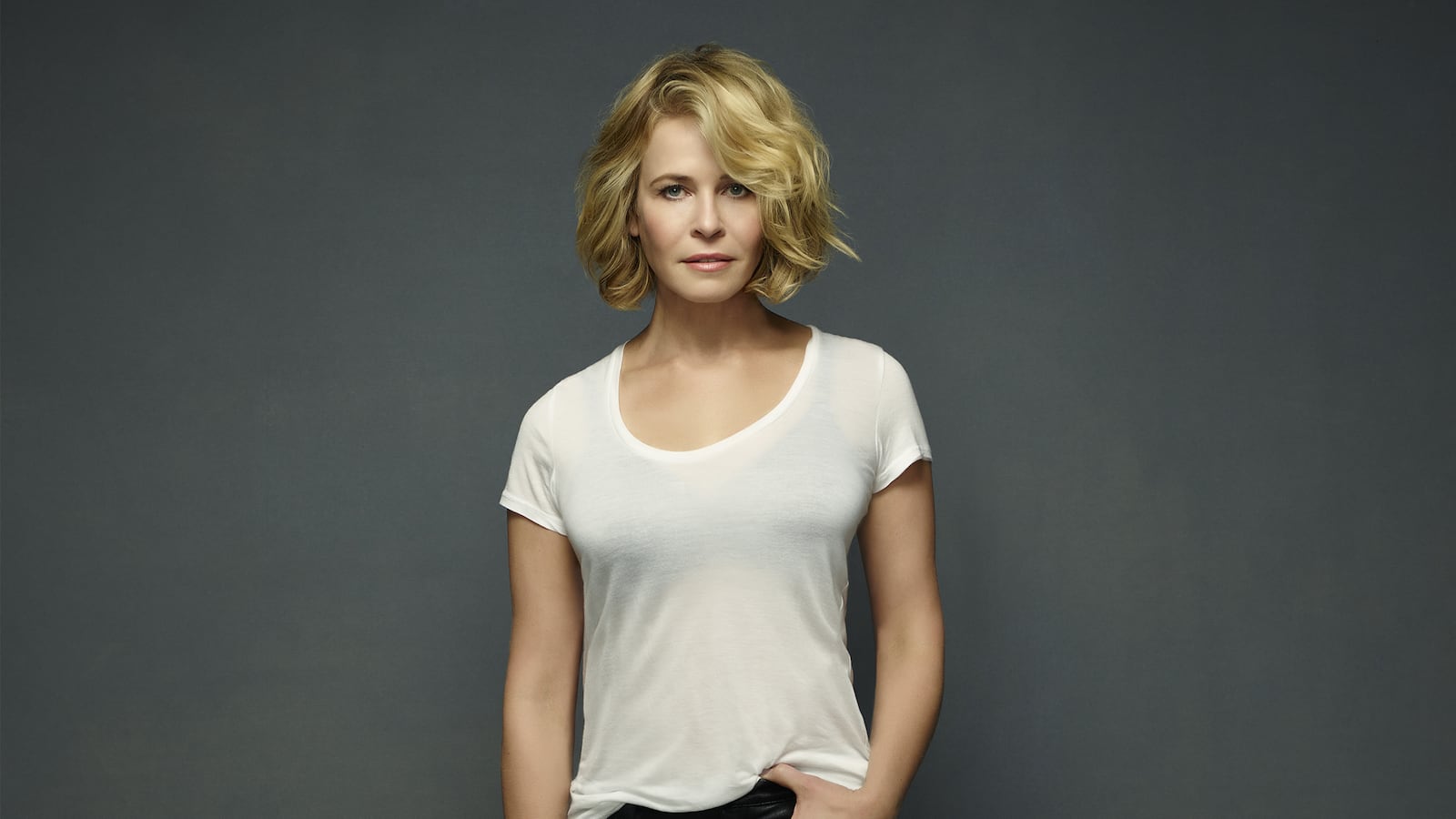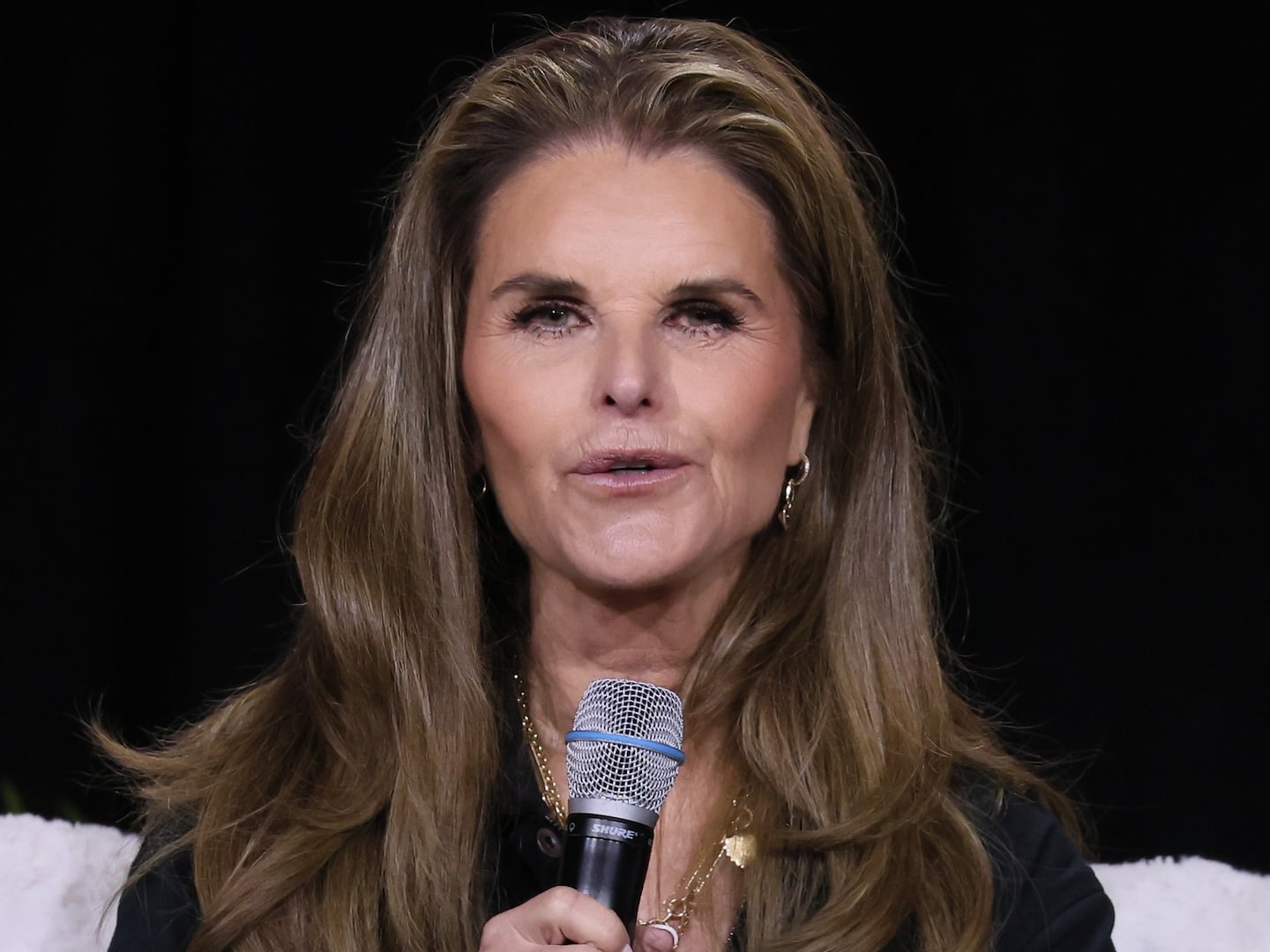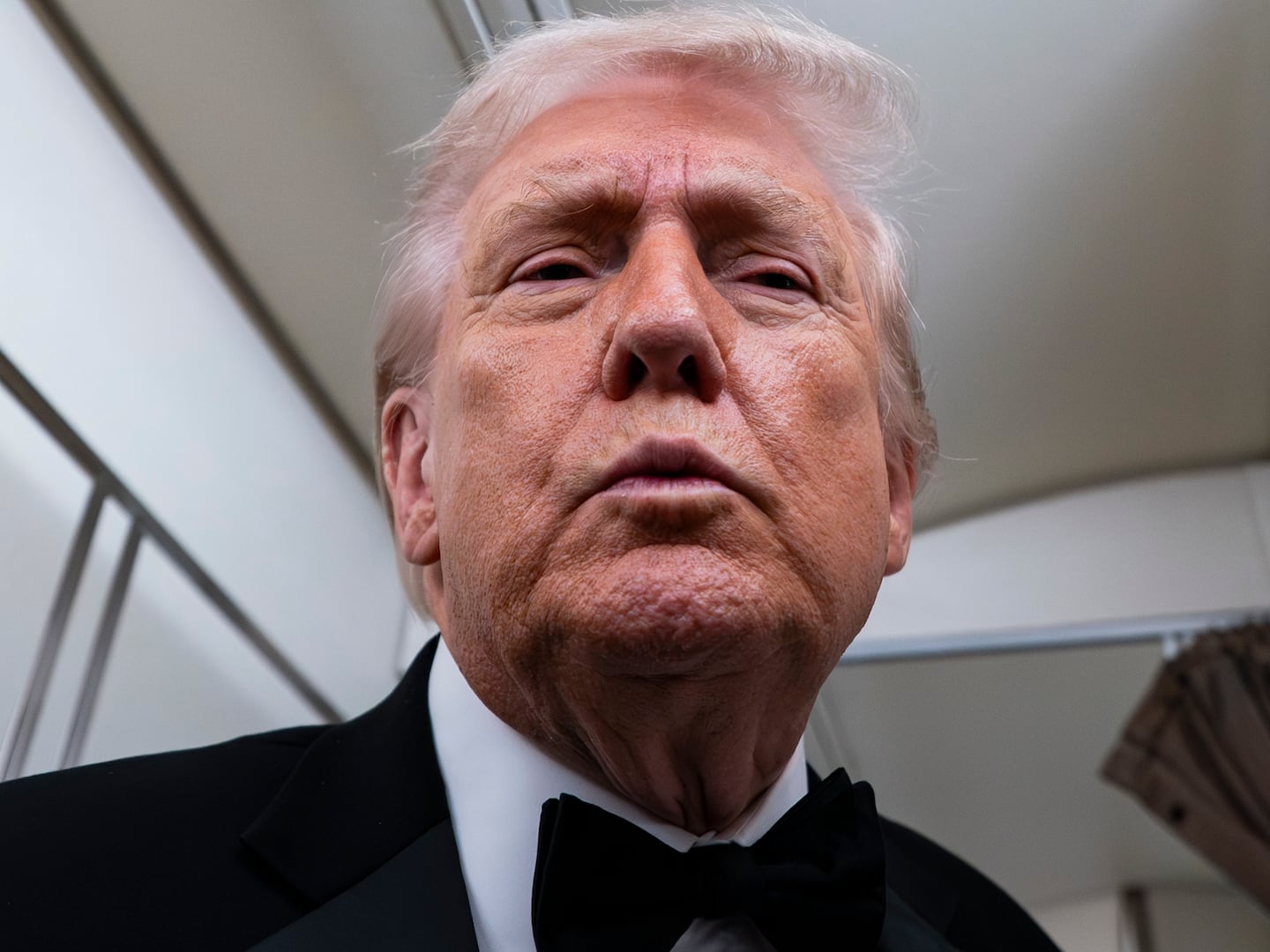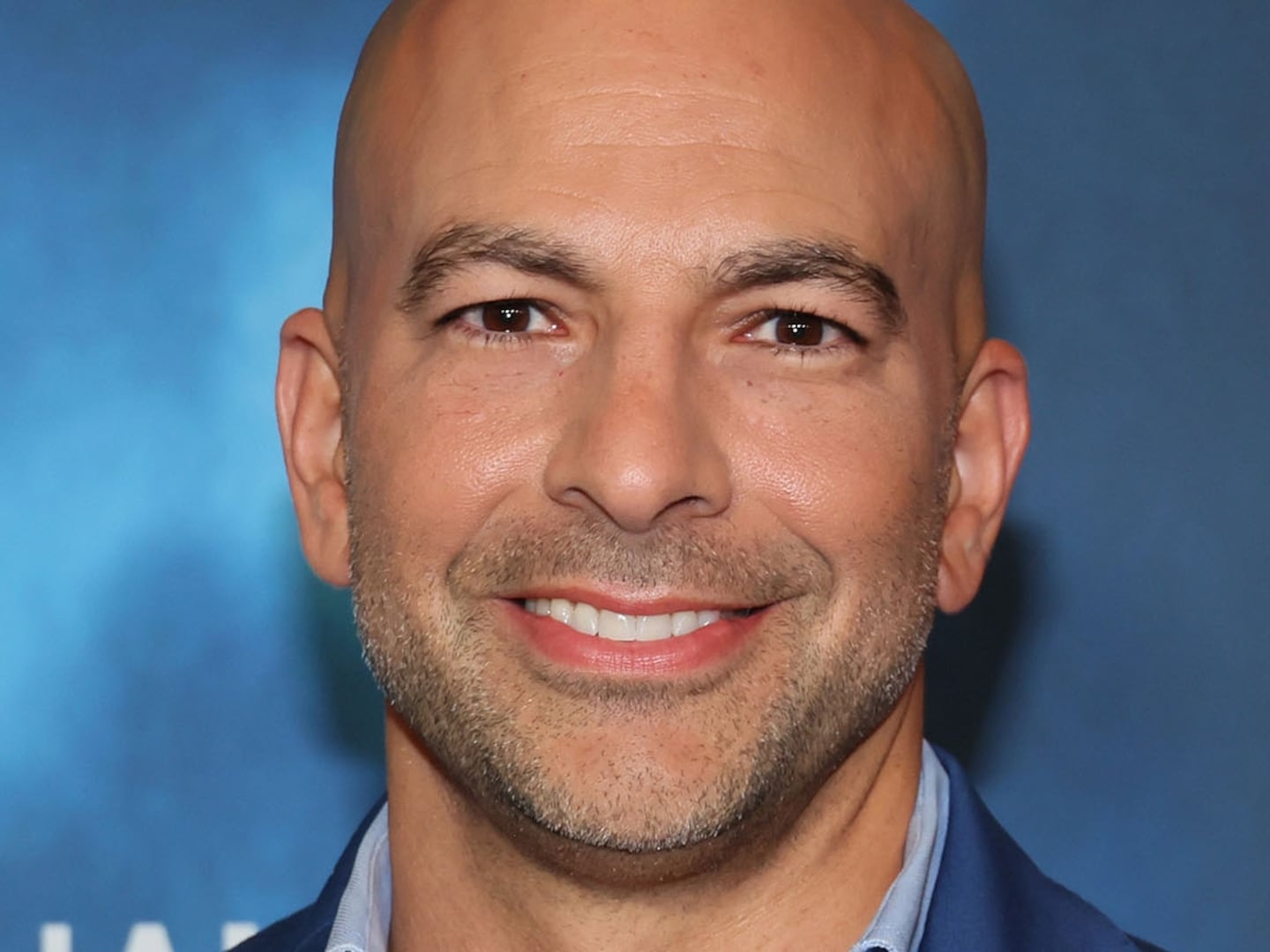Chelsea Handler is tired of being funny.
Well, she’s tired of having to be only funny. She wants to be serious and inquisitive. She wants to inspire and educate. She wants to get smarter and look stupid. Sure, she wants to be funny. But she also wants to be more.
“I’m a stand-up comedian and that’s how I became successful,” Handler tells The Daily Beast. “I’m always expected to be funny because of the way I positioned myself in my career. That’s what people want from you. I want to do that, but I also want to have another layer. Everyone has more than one thing to offer.”
The tough, snarky exterior that we associated with Handler after her seven years hosting E!’s Chelsea Lately started to peel away with her four-part docuseries Chelsea Does, which premiered on Netflix in January. As Handler traveled the world to explore issues of race, marriage, drugs, and technology, she revealed more of herself than ever before.
A lot of people loved Chelsea Handler before Chelsea Does. A lot of people didn’t. But at least, after the series premiered, they were starting to get to know the real her.

It’s a mission that entered phase two last week with the premiere of Handler’s landmark new talk show, Chelsea, which eschews the idea of the traditional late-night talk show in favor of what could be best called The Education of Chelsea Handler.
Just by the way it reaches the world, Chelsea bucks tradition.
It’s a show that debuts three new episodes each week at 12:01 PT every Wednesday, Thursday, and Friday, and, because they’re hosted on a streaming service known for binge-watching, aren’t necessarily meant to be appointment viewing. Chelsea Lately is now Chelsea Anytime You Want.
“I don’t know if you binge-watch a talk show!” Handler says, when asked how she thinks people will watch her series. “I don’t know how that works.”
We’re talking just hours after the third and final episode of her first week on Netflix launched. Like the rest of the entertainment industry attempting to figure out how exactly a late-night talk show on a streaming service works, Handler is in a curious, learn-as-she-goes state of mind about Chelsea.
“When I look on Twitter people are watching the show in the morning and I’m like, ‘Oh no! I don’t want you to watch my show in the morning,’” she says. “And then I’m like, ‘Who gives a shit?’ What do I care? It’s streaming so it can be whenever you want to watch.”
Her sisters had actually forwarded her a tweet from two teen girls who skipped school to watch the first episodes together. “I’m like, ‘You don’t have to skip school! You can watch it later. What are you doing?’”
The first three episodes leaned heavily on what Handler learned filming Chelsea Does. The shows were themed around certain issues. The premiere trumpeted the idea that this show would double as the college education Handler never had. “And Netflix is giving me a free ride!” she joked.
Her first guest was U.S. Secretary of Education John King—not your typical first-night booking. Episode 2 featured Gwyneth Paltrow and Chris Anderson, curator of TED Talks, discussing startup culture and how they can lead to change. Filmed segments and sketches come and go in between, revealing the rebellious format of this new late-night show: this really isn’t one.
“Oh, it’s a huge relief,” Handler sighs, looking back at her first week and the show finally getting off the ground nearly two years after her deal with Netflix was announced.
(Also a relief: a brief respite from being asked what it’s like to be a woman in late night. “People are still asking me that,” she says. “And I’m not answering it anymore.”)
“It’s so annoying to have to try to describe a show to somebody,” she continues. “Especially a talk show. It’s like, how am I supposed to describe it? You have to show it. So it’s a huge relief to have the first week under our belts so we can just dive into it and have fun with it and get my message out there about what I want to do. Now it’s happening, so I’m happy.”
The fast-talking, stream-of-consciousness Handler takes a rare reflective pause: “I’m so into it. I’m into it. Finally, I’m into something.”
Handler has never been shy about feeling constrained, even bored, by her time dishing about the Kardashians and quipping her way through six-minute celebrity promo interviews on Chelsea Lately. In her farewell episode, she referred to the show as “seven years of ridiculous stupidity.”
It was tongue-in-cheek, of course. Well, mostly.
She cleansed her palate with Chelsea Does, which was born as much out of frustration as it was ambition.
“I didn’t realize how little people knew of me,” she says. “You just assume when you’re on TV every night that people know what kind of person you are. But all I was doing on [Chelsea Lately] was telling people when to talk, when to shut up, making fun of things, and being snarky. Obviously that’s not who I am completely. I am many more things.”
Chelsea Does showed off her desire to learn, and in doing so revealed all of the intelligence, compassion, love, fear, ambivalence, pain, and pride that many fans didn’t know existed—all with the same provocative sense of humor that we’ve grown accustomed to.
In Chelsea Does Race, Handler traveled to the Deep South to uncover lingering racial tension, patrolled the U.S.-Mexico border, traveled to Israel, and tackled our culture of political correctness by facing a firing squad of propriety police featuring representatives from the Anti-Defamation League, the NAACP, and other organizations to glean what they find offensive and why.
Chelsea Does Marriage found Handler confronting her own resistance to settling down and getting married and showcased her pride in making it to 40 while resisting the traditional trajectory of having a family. Chelsea Does Drugs found her grappling with lingering feelings over her brother’s death and her mother’s terminal battle with breast cancer, not to mentioning sampling ayahuasca for the first time.
And all of the personal discoveries were colored by interviews both with top experts in those fields and also everyday people whose lives are affected by the issues she was exploring.
Chelsea continues to delve into what Chelsea Does scratched the surface of. “I just want to be a better educator, a better person, and all of these things that go along with growing up,” Handler says of her goal for the show. “But still be incredibly stupid while doing it.”
The result is a talk show that seems to be a bridge between the late-night format that we’re familiar with and the cultural anthropology Handler conducted on Chelsea Does. She’s insistent that her show isn’t tied to any kind of structure, and will be different each night as the guests and topic dictates.
And while she has celebrity guests on—Gwyneth Paltrow and Drew Barrymore appeared in the premiere week, and Gwen Stefani will be a guest in week two—they are there to bounce off these lessons that Handler is learning, and not to plug (at least not overtly) their new projects.
“I just made a real effort that I don’t want to have the nyuk-nyuk laugh-laugh every two seconds,” Handler says. “It can be weightier.”
Before she goes out to film each episode, she reminds herself that she doesn’t need to lean on humor. “It’s my go-to safety net, like saying ‘fuck’ or something,” she says. “I don’t want to rely on laughs to make the show.”
It’s an adjustment, and there’s a little bit of fear entering that space, she says. But there’s also a self-confidence. “I have the funny down,” she says. “I want to do more than that.”
Based on the first few episodes of Chelsea and Handler’s premiere sermon about using the show as “the college education I never got,” The Daily Beast called the talk show Handler’s “war on stupidity.”
Part of that is because of her lofty desire to not just entertain, but to teach and even inspire with her series—and to do it not from a point of view satirizing the news, or even getting mad-as-hell about it. She’s doing it from a place from of questioning, and without being afraid of looking stupid while doing it.
“You can’t be stupid when you’re asking questions,” Handler says. “I’m always trying to learn and figure stuff out and be a better human being: be more compassionate, be more elegant, be nicer to people, don’t be biting, don’t be mean.”
Over the course of her career, she’s found that her set of goals have shifted. She’s been given this platform at Netflix, and the spotlight that comes with being the first talk show host on a streaming service. And she wants to use it for good.
“Yeah, I’m an idiot sometimes,” she says. “But I’m also not an idiot sometimes. We’re all a bunch of things. The important thing is to keep asking questions.”
When she set a mission statement for her show, she sat her staff down and said that she wants it to be messy, to seem real.
“All of TV is about everybody looking perfect,” she says. “I’m not perfect. So let’s get messy.”






